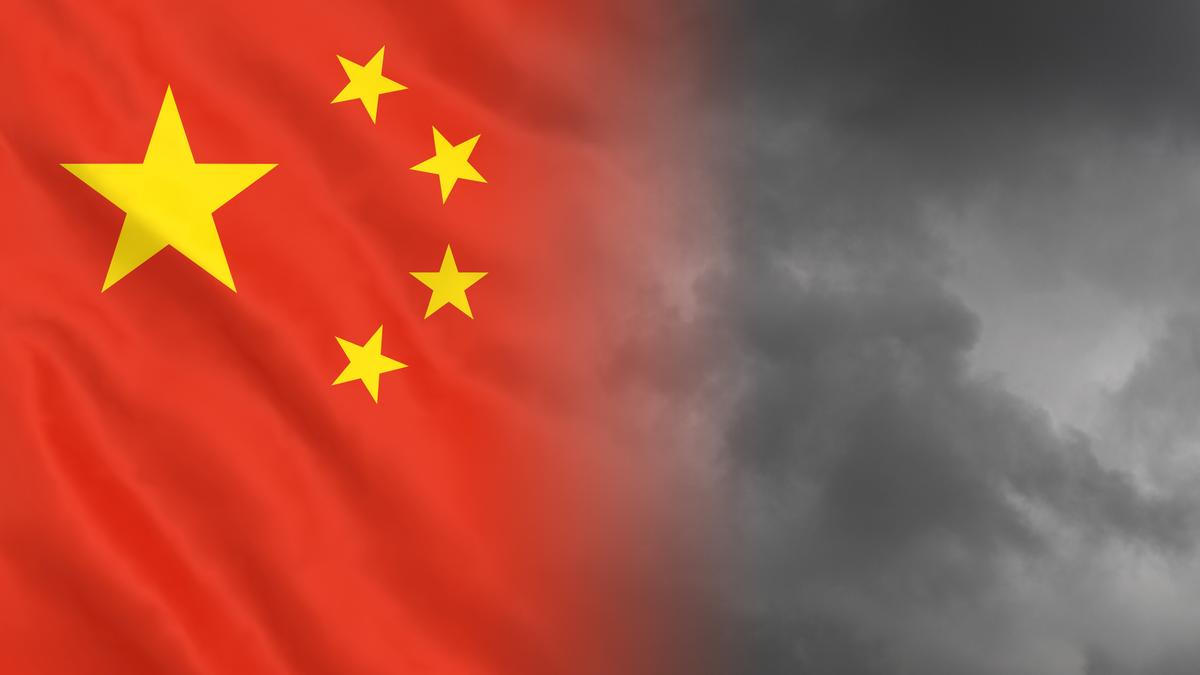‘From the Indian perspective, it is important that it is able to gather much from these changes as far as the nature of leadership in the PLA is concerned’
| Photo Credit: Getty Images/iStockphoto
August 1, 2024 marked the 97th anniversary of the founding of the Chinese People’s Liberation Army (PLA), and the week was celebrated with pomp and show. But there were also sombre inspections and clandestine changes in the military leadership. More specifically, the Southern and Northern Theaters of the PLA witnessed a change in commanders, with General Wu Yanan and General Huang Ming, respectively, taking charge sometime in the last month. These new appointments, revealed rather silently in the provincial coverage of August 1 ceremonies, are the latest in a line of dismissals and replacements in the PLA, and are stirring the pot of speculations over potential reasons and implications.
Tumult in the Southern Theater
In recent months, China has been embroiled in skirmishes with the Philippines in the South China Sea. It has drawn critique from regional powers such as Japan and the United States, and has caused the overall security situation to deteriorate. With China’s external environment becoming increasingly hostile, as expressed in President Xi Jinping’s oft-repeated words, “profound changes unseen in a century”, the PLA is expected to transform into a “world class” military force prepared to take on diverse regional conflicts.
Hence, the surreptitious removal of General Wang Xiubin as commander of the Southern Theater may signal his perceived inefficiencies in solidifying China’s ambitious and belligerent vision of naval power. However, beyond these obvious factors, internal politics within the Theater Command may also have something to do with Wang’s replacement.
In June 2024, the Central Military Commission (CMC), China’s highest decision-making body on defence matters, organised its Political Work Conference. Soon after, the Southern Theater command organised a study session to “understand and implement the Conference’s spirit”. It was revealed then that a joint training exercise had been recently conducted between the theatre’s various naval units, and that the results were dismal. More specifically, during this exercise, some political officers were found to be very inefficient in fulfilling their wartime mobilisation duties.
In April 2024, various military officers in the theatre also met to discuss tensions between older veterans and new leading officers. It was concluded that the common goal for all theatre personnel was to evolve from “mutual discontent” to “mutual support”. And as the theatre grappled with issues pertaining to cohesion and efficiency, it had to establish a “fault tolerance” mechanism to allow personnel to make mistakes, report errors without the fear of reprimand, and enable rectification upon inspection.
When sweeping reforms in the PLA were first initiated in 2015, they promised to create a perfect military force. The emphases on achieving flawless interoperability, creating a seamless hierarchy where younger personnel had the freedom to innovate, and building an exquisite mechanism for wartime mobilisation, have also barely wavered. But in less than a decade, these developments in the Southern Theater have shown the faultlines in the reform vision.
Implications for the PLA
In this light, it is important to assess what General Wu Yanan’s leadership may mean for the Southern Theater command. To begin with, a potential reason for Wu’s appointment as theatre commander may be that he has extensive experience working side-by-side with party bosses.
Wu is a veteran of the CMC Joint Staff Department, having served as its deputy chief of staff. He has previously also served as Commander of the Central Theater, working closely with officials in Beijing on critical national security issues. In this regard, his appointment to the Southern Theater may well be about implementing the Chinese Communist Party’s reform agenda to a T. Achieving “jointness” between various forces attached to the theatre is vital, and Wu’s experience may be helpful here.
Within a week of his appointment making the news, the Southern Theater command has sprung back on its feet, and has declared that it has “everything under control”. In fact, the joint maritime and aerial patrols conducted by the theatre’s forces on August 7 near the Scarborough islands, show that the theatre is already testing its reconnaissance and early warning capabilities, rapid manoeuvrability, and joint strike proficiency in the disputed region. With Wu in charge, it is likely that both combat preparedness and political cohesion in the theatre will be subject to more pressure tests, and frequent demonstrations of military might in the South China Sea may become a vital parameter of efficiency.
On a broader level, the changes reveal that the PLA’s reform bucket list is nowhere near fulfilled. It also indicates that this period of flux in the PLA, which is marked by purges and replacements motivated by corruption scandals and inefficiencies in reform, is nowhere near over. However, the new leadership is expected to put the internal affairs of the theatres concerned in order, so that the military force can inch closer to its goal of becoming a “world class” one by mid-century.
Lessons for India
From the Indian perspective, it is important that it is able to gather much from these changes as far as the nature of leadership in the PLA is concerned. As the CCP’s army, military commanders are not just assigned based on merit or experience but also on loyalty to the party-state’s goals and priorities. Given that China is both India’s principal rival and its most significant military challenger, India must strive to study the doctrinal evolution of reforms in the PLA, and place the leadership changes in that context.
Anushka Saxena is Staff Research Analyst, The Takshashila Institution, Bengaluru
